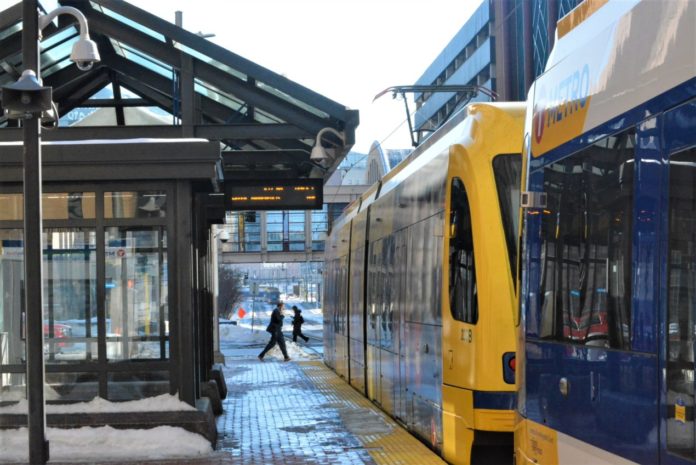MINNEAPOLIS – With the dissolution of the Counties Transit Improvement Board (CTIB) Hennepin County will be shouldering a much higher direct share of the costs for the Southwest Light Rail Transit (SWLRT) project.
The project will cost a total of $1.858 billion, and construct just 14.5 miles of new rail for the Metro Green Lines. At a per-mile cost of $128.14 million, the line would take riders out into the Twin Cities’ western suburbs.
For perspective, according to the American Road & Transportation Builders Association, “the cost of constructing a new 6-lane Interstate highway at about $7 million per mile in rural areas, $11 million or more per mile in urban areas. Mill and resurface a 4-lane road – about $1.25 million per mile. Expand an Interstate Highway from four lanes to six lanes – about $4 million per mile.”
With the dissolution of the CTIB, Hennepin County’s direct contribution to the project is now the second highest expected contribution, reports the Southwest Journal.
Alpha News previously reported that Hennepin County was likely to take on an additional $103.5 million of the project with the CTIB’s dissolution. Now that the county has done so, it’s contribution totals roughly $656.65 million, about 35 percent of the total project, reports the Southwest Journal.
Hennepin County’s number two rating is also a conditional one. The top contributor is expected to be the federal government at a cost of $929 million, half of the estimated total cost. That funding is far from final however.
In May, President Donald Trump’s budget left out any funding for the SWLRT. This came on the heels of Rep. Jason Lewis’ strong opposition to the project, and a letter sent to Transportation Secretary Elaine Chao by more than 80 members of the Minnesota legislature asking that the funds not be approved for the SWLRT.
Lewis has called the project a “prime example of taxpayers being forced to foot the bill for a project with little-to-no benefit.”
Lawmakers instead asked that the money be directed for use on roads and bridges, but that was shot down by the federal government as the money was specifically tailored for grants regarding mass transit projects.
If the federal government indeed does not fund the SWLRT, and the Met Council and other governmental entities are still intent on building the 14.5 mile line, they will need to find yet another way to increase funds, to the tune of an additional $929 million.
If you liked this article you might also like these:













